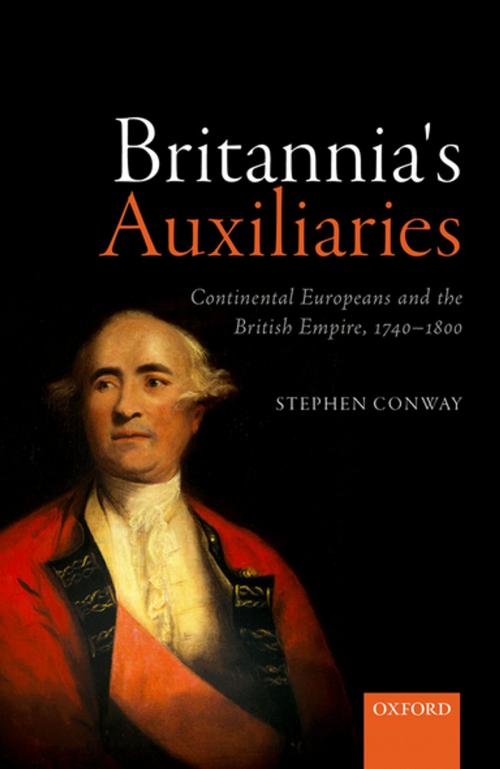Britannia's Auxiliaries
Continental Europeans and the British Empire, 1740-1800
Nonfiction, History, European General, Modern| Author: | Stephen Conway | ISBN: | 9780192536143 |
| Publisher: | OUP Oxford | Publication: | October 20, 2017 |
| Imprint: | OUP Oxford | Language: | English |
| Author: | Stephen Conway |
| ISBN: | 9780192536143 |
| Publisher: | OUP Oxford |
| Publication: | October 20, 2017 |
| Imprint: | OUP Oxford |
| Language: | English |
Britannia's Auxiliaries provides the first wide-ranging attempt to consider the continental European contribution to the eighteenth-century British Empire. The British benefited from many European inputs - financial, material, and, perhaps most importantly, human. Continental Europeans appeared in different British imperial sites as soldiers, settlers, scientists, sailors, clergymen, merchants, and technical experts. They also sustained the empire from outside - through their financial investments, their consumption of British imperial goods, their supply of European products, and by aiding British imperial communication. Continental Europeans even provided Britons with social support from their own imperial bases. The book explores the means by which continental Europeans came to play a part in British imperial activity at a time when, at least in theory, overseas empires were meant to be exclusionary structures, intended to serve national purposes. It looks at the ambitions of the continental Europeans themselves, and at the encouragement given to their participation by both private interests in the British Empire and by the British state. Despite the extensive involvement of continental Europeans, the empire remained essentially British. Indeed, the empire seems to have changed the Europeans who entered it more than they changed the empire. Many of them became at least partly Anglicized by the experience, and even those who retained their national character usually came under British direction and control. This study, then, qualifies recent scholarly emphasis on the transnational forces that undermined the efforts of imperial authorities to maintain exclusionary empires. In the British case, at least, the state seems, for the most part, to have managed the process of continental involvement in ways that furthered British interests. In this sense, those foreign Europeans who involved themselves in or with the British Empire, whatever their own perspective, acted as Britannia's auxiliaries.
Britannia's Auxiliaries provides the first wide-ranging attempt to consider the continental European contribution to the eighteenth-century British Empire. The British benefited from many European inputs - financial, material, and, perhaps most importantly, human. Continental Europeans appeared in different British imperial sites as soldiers, settlers, scientists, sailors, clergymen, merchants, and technical experts. They also sustained the empire from outside - through their financial investments, their consumption of British imperial goods, their supply of European products, and by aiding British imperial communication. Continental Europeans even provided Britons with social support from their own imperial bases. The book explores the means by which continental Europeans came to play a part in British imperial activity at a time when, at least in theory, overseas empires were meant to be exclusionary structures, intended to serve national purposes. It looks at the ambitions of the continental Europeans themselves, and at the encouragement given to their participation by both private interests in the British Empire and by the British state. Despite the extensive involvement of continental Europeans, the empire remained essentially British. Indeed, the empire seems to have changed the Europeans who entered it more than they changed the empire. Many of them became at least partly Anglicized by the experience, and even those who retained their national character usually came under British direction and control. This study, then, qualifies recent scholarly emphasis on the transnational forces that undermined the efforts of imperial authorities to maintain exclusionary empires. In the British case, at least, the state seems, for the most part, to have managed the process of continental involvement in ways that furthered British interests. In this sense, those foreign Europeans who involved themselves in or with the British Empire, whatever their own perspective, acted as Britannia's auxiliaries.















